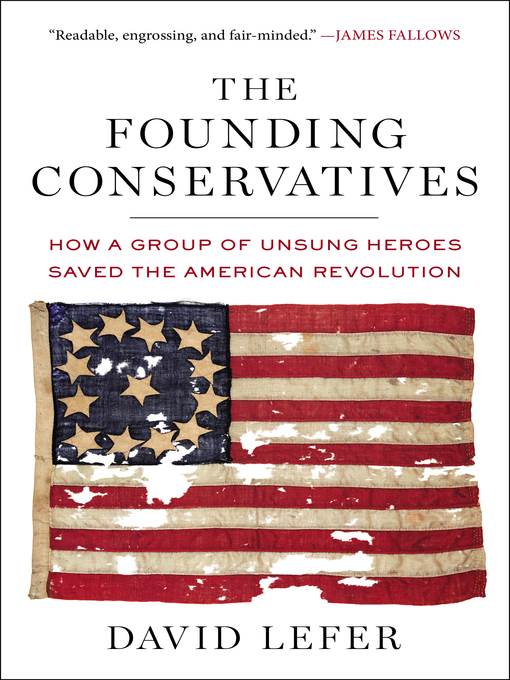
The Founding Conservatives
How a Group of Unsung Heroes Saved the American Revolution
کتاب های مرتبط
- اطلاعات
- نقد و بررسی
- دیدگاه کاربران
نقد و بررسی

April 29, 2013
The American Revolution’s more conservative members get a second look in this solid new history. Lefer, a professor of engineering at N.Y.U.’s Polytechnic University, argues that American conservatism began not with the writings of Irish politician Edmund Burke, but with a handful of revolutionaries who’ve been overshadowed by their better-known founding brothers. The author focuses heavily on James Dickinson, whom Voltaire dubbed the “American Cicero” for his Farmer’s Letters newspaper column in The Pennsylvania Chronicle and Universal Advertiser, which in the 1760s rallied support against British taxes by encouraging colonists to boycott goods from England and publicly protest. Lefer also profiles Silas Deane, America’s first representative to France; Philip Schuyler, a major general who fought against the British; and Robert Morris, the merchant who helped fund the revolution. Again and again, the author emphasizes the moderation of his subjects (“The only time Dickinson seemed to lack moderation was when he was extolling its virtues”) as opposed to the “radicals” agitating for grander changes. Lefer does a great service by shedding new light on these “other” revolutionaries. But even though he acknowledges the dissimilarities between these men, as well as the fact that they did not form a political party, his modern labeling of them as “conservatives” feels forced, and it oversimplifies the complexities of the political discourse that was raging in the colonies. Agent: Meg Thompson, Einstein Thompson Agency.

Starred review from April 15, 2013
Offering a corrective to traditional accounts depicting united American revolutionaries, this valuable revisionist assessment profiles the men who struggled against the nascent nation's more radical elements. Lefer (Innovation and Technology/New York University Polytechnic Institute; co-author, They Made America, 2004) does not claim to be writing an all-encompassing history. He focuses on such early conservatives as Robert Morris, who almost single-handedly bankrolled the revolutionary army, and Silas Deane, who, with help from playwright Pierre Beaumarchais, secretly secured lifesaving aid from the French government. Among the others given credit for saving the American Revolution from its excesses are John Dickinson, a voice of calm in the rush to independence and an author of the Articles of Confederation, and John and Edward Rutledge, leading advocates for the South's particular concerns. The conservatives did their best to delay armed conflict with Great Britain, knowing it was premature; the colonies were not united and had no foreign allies. In this book, the glorious war for independence of elementary school textbooks is more disastrous than glorious. In Lefer's retelling, no one was in charge, there was no money, price regulation was destroying the social fabric, and American cities were essentially ruled by mobs. Moving through the desperate days of war to peace and the writing of the Constitution, Lefer reminds us that, while James Madison authored the initial draft, conservatives Dickinson, James Wilson and Gouverneur Morris finished the document. The author acknowledges that many of the remarkable men who gave their energy, intelligence and wealth to the young nation did not retain power; clinging to their elitist ways, they ignored the key lesson of the Revolution: adapt to change or risk irrelevance. Also, somewhat ironically, several of these staunch supporters of market capitalism suffered severe financial losses. Groundbreaking history not to be missed--a book to quote and to keep, as the material is rich enough to merit rereading.
COPYRIGHT(2013) Kirkus Reviews, ALL RIGHTS RESERVED.

























دیدگاه کاربران